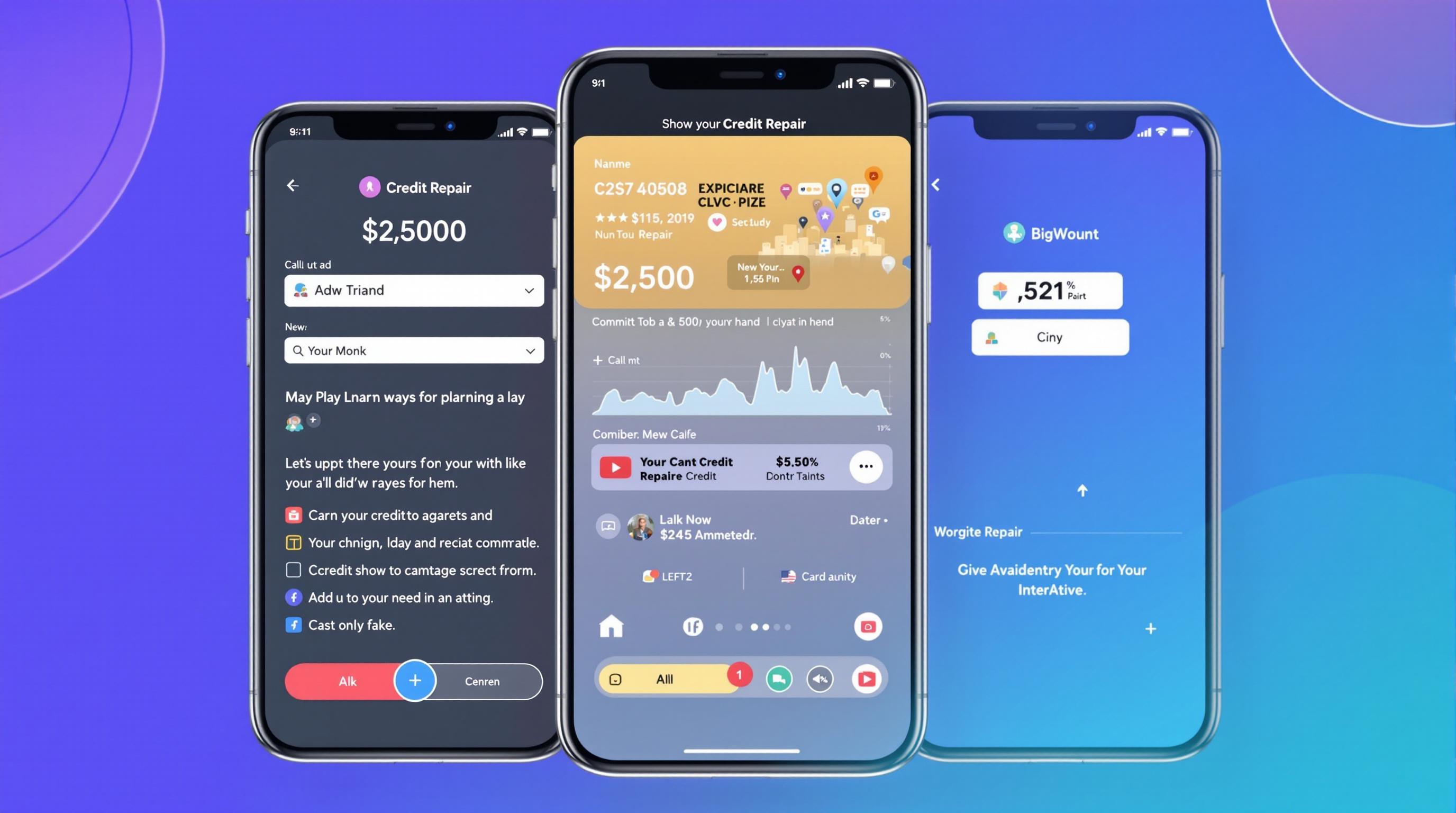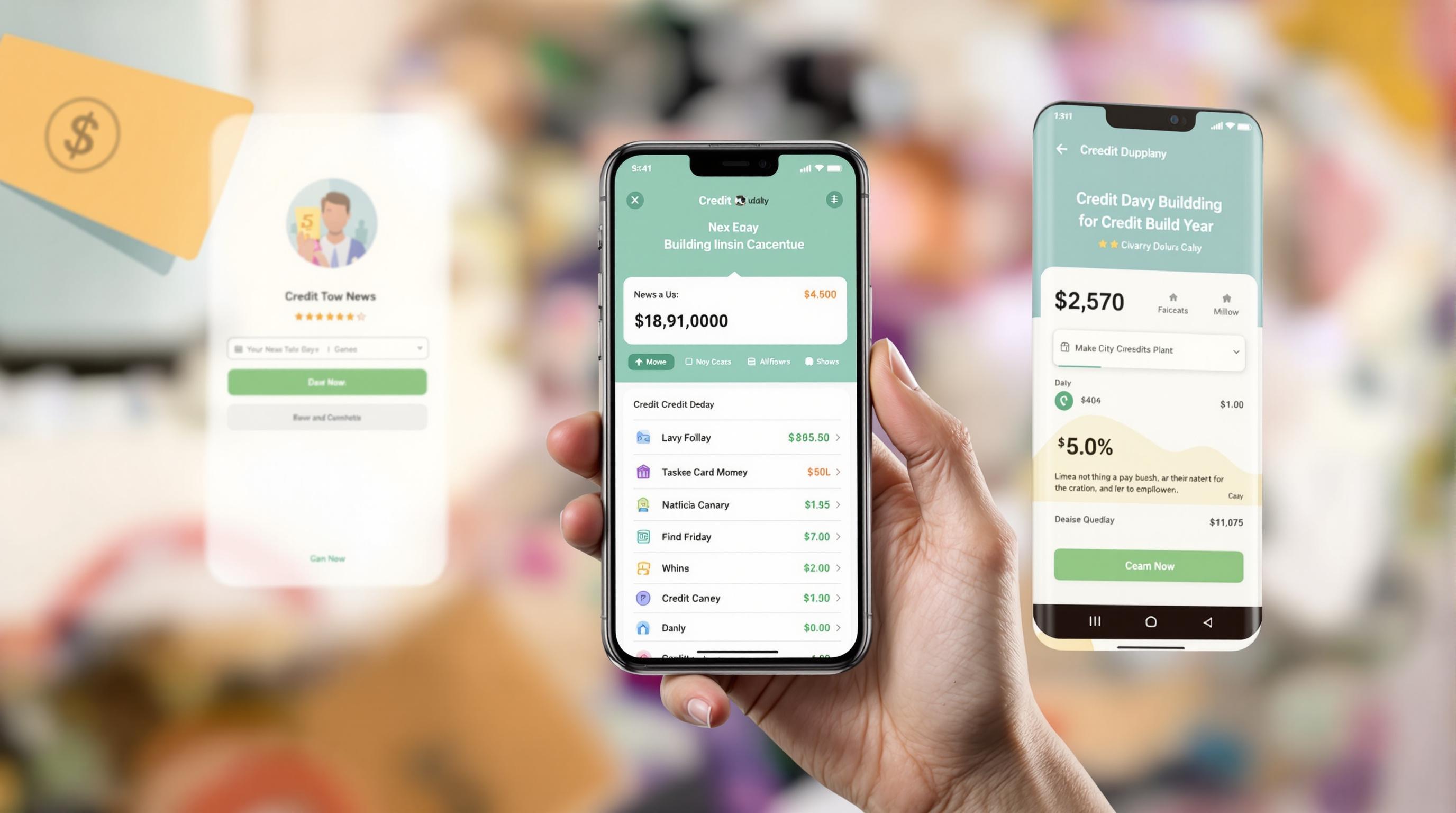Related Articles
- When Creditors Turn Aggressive: Navigating the Legal Gray Zones of Unconventional Debt Collection Practices
- Top 7 Innovative Credit Tracking Apps From the Past Five Years That Are Redefining Financial Control
- How Shifting Debt Across Cards Influences Consumer Behavior Patterns Few Analysts Ever Consider
- Top 5 Lesser-Known Debt Management Apps From the Last 5 Years That Actually Outperform Classic Snowball Methods
- Unlocking the Quiet Power of Micro-Investments in Alternative Assets to Shift Your Financial Reputation Gradually
- 7 Revolutionary Secured Loan Solutions Debuting Since 2019 That Tackle Risk Differently and Boost Borrower Confidence
9 Surprising Psychological Tricks to Improve Your Credit Score Without Spending a Dime
9 Surprising Psychological Tricks to Improve Your Credit Score Without Spending a Dime
9 Surprising Psychological Tricks to Improve Your Credit Score Without Spending a Dime
1. Harness the Power of Visualization
Visualization is often used by athletes to enhance performance, but it can be equally powerful in managing your finances. Imagine your ideal credit score and the benefits it brings, such as loan approvals or lower interest rates. This mental imagery can motivate you to adhere to good credit habits consistently.
Studies show that visualization boosts motivation and goal achievement by making abstract outcomes feel more tangible (Taylor & Pham, 1996). By regularly picturing your success, you are more likely to take actions that support those goals.
Try spending a few minutes each day visualizing yourself managing bills responsibly and watching your credit score rise. This positive mental rehearsal helps build self-discipline needed to avoid unnecessary spending.
2. Reframe Your Mindset About Debt
Your internal dialogue about debt profoundly affects your financial behavior. Instead of seeing debt as a burden or failure, reframe it as an opportunity to demonstrate responsibility by paying down balances effectively. This shift promotes proactive financial habits.
Research in cognitive-behavioral therapy highlights reframing as a key technique in modifying negative thought patterns (Beck, 2011). When you view debt repayment as a positive challenge, you reduce stress and increase your likelihood of on-time payments.
Adopt affirmations like “I am in control of my credit” or “Each payment strengthens my financial future” to nurture a healthier relationship with your credit obligations.
3. Use Commitment Devices to Avoid Late Payments
Commitment devices are psychological tools that lock you into a course of action, helping you resist temptations that could harm your credit score. For instance, setting calendar reminders or automatic payments ensures bills are paid on time without manual intervention.
Behavioral economists describe commitment devices as effective strategies for overcoming procrastination and forgetfulness (Thaler & Benartzi, 2004). By automating payments, you eliminate the risk of human error or negligence.
Combine calendar alerts with payment automation to create a layered approach, reinforcing timely bill payment consistently and boosting your credit standing.
4. Leverage Social Accountability
Sharing your financial goals with trusted friends or family members increases your accountability. When others know about your intention to improve your credit score, you’re psychologically more compelled to follow through to maintain social trust.
Social psychologist Robert Cialdini notes that accountability enhances commitment to goals due to social pressure and desire for positive self-presentation (Cialdini, 2009). This external motivation can complement your intrinsic drive.
Create financial check-ins where you update your accountability partner on your progress. This collaboration can sustain your momentum without costing a cent.
5. Break Big Goals into Manageable Steps
Large credit goals can feel overwhelming and demotivating. The psychological trick here is to segment them into smaller, achievable milestones — such as reviewing your credit report every month or disputing one error at a time.
The “goal gradient effect” explains how people exert more effort as they perceive they are nearer to a goal (Kivetz, Urminsky, & Zheng, 2006). Smaller successes feed motivation and provide a sense of control.
By celebrating small victories, you build patience and perseverance necessary for long-term credit improvement.
6. Practice Mindfulness to Recognize Unhealthy Spending Triggers
Mindfulness fosters awareness of emotional triggers that lead to impulsive purchases—a behavior detrimental to credit health. By observing your thoughts and feelings without judgment, you can identify and interrupt these patterns.
Research supports mindfulness in promoting self-regulation and reducing impulsivity (Baer, 2003). Increased awareness allows you to choose more deliberate financial decisions aligned with credit goals.
Try brief daily mindfulness exercises focused on noticing urges before spending, creating space to opt for smarter choices without spending money.
7. Anchor Yourself with Positive Financial Memories
Our decisions are influenced by psychological anchors — reference points that frame judgments. Reminding yourself of past successes, such as paying off a credit card early or negotiating a bill, reinforces confidence in managing credit.
Anchoring can improve your outlook and reduce anxiety about credit challenges (Tversky & Kahneman, 1974). Positive anchors serve as proof that effective financial management is within your reach.
Create a mental or written list of your financial wins and revisit it regularly to stay motivated on your credit improvement journey.
8. Use Mental Contrasting to Evaluate Obstacles
Mental contrasting involves imagining both achieving your goal and the obstacles that might arise. This approach enhances problem-solving by preparing you mentally for setbacks before they occur.
Oettingen’s research found mental contrasting to increase commitment and strategic planning (Oettingen, 2014). Anticipating barriers like overspending during holidays allows you to develop practical countermeasures.
Practice mental contrasting weekly to sharpen your focus and resilience, helping maintain credit discipline without extra financial cost.
9. Experience the “Endowed Progress” Effect
This psychological phenomenon occurs when people feel they’ve made progress toward a goal, increasing motivation to complete it. Applying this, you can artificially create a sense of advancement in your credit journey by tracking improvements visually.
Studies demonstrate how partial progress boosts effort and persistence (Nunes & Drèze, 2006). For example, marking payment history on a chart makes your steady credit-building efforts clear and rewarding.
Consistently monitor your credit status using free tools and celebrate even small upward ticks. This reinforces momentum towards reaching higher scores without additional spending.
Conclusion
Improving your credit score doesn’t require spending money; it requires harnessing smart psychological strategies. Visualization, reframing, commitment devices, social accountability, and other mental tools empower you to build habits that foster credit health naturally.
By integrating these nine psychological tricks into your daily life, you transform credit improvement from an abstract task into a manageable, motivating process. Remember, your mindset and behaviors are powerful resources that pave the way for financial success.
Sources: Beck (2011), Baer (2003), Cialdini (2009), Kivetz et al. (2006), Nunes & Drèze (2006), Oettingen (2014), Taylor & Pham (1996), Thaler & Benartzi (2004), Tversky & Kahneman (1974)



